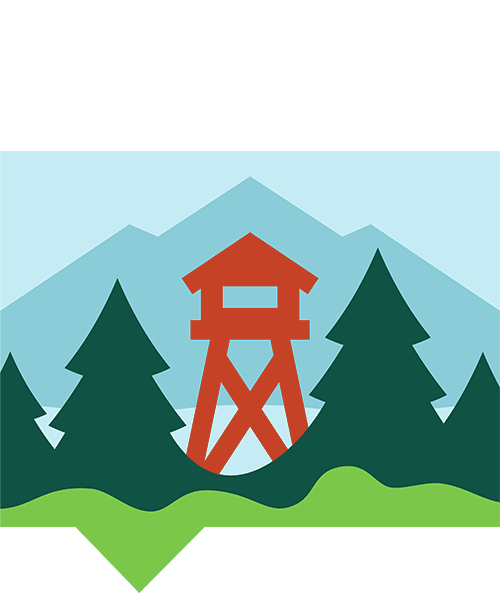An effort to resolve the ongoing dispute between short-term rental owners and the local governments hoping to regulate them didn’t make it out of the statehouse this year.
On Tuesday, the Idaho Senate took up bill 1162 from Sen. Brian Lenney, R-Nampa, and Rep. Jordan Redman, R-Coeur d’Alene, which would have further tightened the state code on what rules local governments can impose on short-term rentals, like Airbnbs or VRBOs. The current state law allows local governments to only regulate short-term rentals to address health and safety issues.
The Idaho Realtors Association, which was involved in developing the legislation, is currently suing the City of Lava Hot Springs over its regulations of short-term rentals and is awaiting a decision from the Idaho Supreme Court. The City of McCall is also facing a lawsuit in district court from short-term rental owners over its ordinance restricting short-term rentals.
The original version of this bill would have prevented local governments from regulating short-term rentals any differently than regular residential homes, including in local planning and zoning regulations. Amendments to the bill brought by Sen. Treg Bernt, R-Meridian, restored this ability for cities to use zoning rules to classify short-term rentals how they wish or regulate them using conditional use permits.
After the compromise, the bill still would have zeroed out large portions of local regulations various cities have placed on short-term rentals statewide. It specifically called out that short-term rental owners cannot be required to live on the property for any length of time, hire a professional property management company, or purchase any additional insurance.
Local governments also wouldn’t be able to require short-term rental owners to report information on how often units are used or any other statistics, any additional fire protection or a fire sprinkler system, build improved entrances and exits, or add additional parking. No local ordinances or building codes could require any modifications to the physical structure of the home, inspections, interior or exterior signs, notices or diagrams, along with a series of other regulations cities have imposed.
The original version of the bill would have also capped city business license fees at $50, but the amended version only requires the fees be reasonable as compared to the cost of processing the service.
Jake Coho, a legislative substitute for Lenney, argued the bill would protect Idaho’s tourism industry and residents’ property rights at the same time.
“This bill simply takes existing code and provides some clarity and side rails on short-term rental owners and what cities can do,” Coho said. “It preserves tourism income tax and it provides certainty without the need of lengthy lawsuits and, frankly, it protects property rights. I can’t imagine any of us wanting to be told what we can and cannot do to that length with our homes.”
It failed 11-23. This follows another similar piece of legislation, which would have further stripped cities of their powers to regulate these rentals, failing to make it out of committee in 2024.
Support, opposition from across the political spectrum
This bill managed to elicit various reactions cutting across typical partisan lines.
Sen. Melissa Wintrow, D-Boise, and Sen. Ron Taylor, D-Hailey, both debated against the bill, arguing the measure stripped away the ability for local governments to protect neighborhoods against the specific impacts of short-term rentals in their cities. Wintrow noted the City of Boise’s licensing efforts to attempt to quantify short-term rentals in city limits, which are densely packed in her North End district.
Without donors like you, this story would not exist.
Make a donation of any size here
“I would like to protect my property, not the property that an out-of-state corporation buys and wants to make money off of or a group of people who come in and buy up a neighborhood and rent it out,” Taylor said. “I want to protect my property as an Idahoan. That’s how I feel about property rights.”
Sen. Ben Toews, R-Coeur d’Alene, told a story during the debate of one of his constituents who relied on the extra income from their short-term rental to support the mother in the family to be a stay-at-home mother. He claimed this ended when the City of Coeur d’Alene put a notice on their door in violation of the city’s ordinance regulating short-term rentals, pushing the mother to return to work.
He did not specify exactly what part of the city’s ordinance forced this short-term rental to close or why they were not able to get back into compliance to continue operating.
“I believe having the property rights and the freedom to have short-term rentals supplement income for families is a wonderful thing for our societies,” he said. “I am saddened when I watch cities put blocks in the way of entrepreneurship and property rights.”
Sen. Jim Woodward, R-Sagle, pushed for an amendment on the bill that would be even more generous to what local cities would want, but it died on the floor when Bernt called it a hostile amendment. He acknowledged that some rules, like those requiring fire suppression systems inside homes, were a bridge too far, but he said this bill didn’t find the right balance between protecting local control and short-term rental owners.
“Imagine being out in Meridian on one of these nice little culdesacs and you build this house and you have neighbors and you have kids, but your kids aren’t going to get to know the neighbors’ kids if they are different kids every night,” he said. “There’s a difference between a house and a hotel.”
Sen. Josh Kohl, R-Twin Falls, and Sen. Todd Lakey, R-Nampa, also objected to the bill, but over concerns with the provision that it allowed cities to require a business license to operate a short-term rental at all.
“A business license is permission to do business with really no other justification other than you need our permission, no connection to health and safety,” Lakey said.






